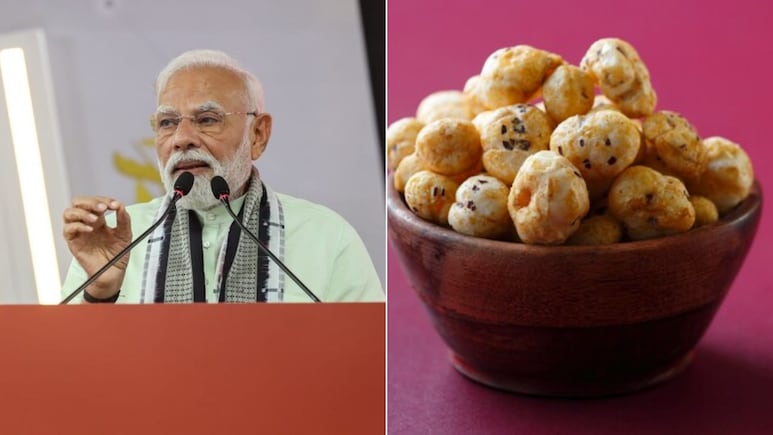
Prime Minister Narendra Modi on Monday launched the National Makhana Board in Purnea, Bihar - a move first announced in the Union Budget 2025 that the government says will help scale up production, processing and exports of makhana, also known as fox nut. The Centre has approved a development package worth nearly Rs 475 crore for the sector.
What The Board Will Do
The board is expected to focus on raising production standards, improving post-harvest management, introducing new technologies, expanding value addition and strengthening marketing and export linkages. Officials say the body will also support farmer-producer organisations and help makhana farmers access relevant central schemes.
PM Modi's Endorsement
Speaking at the launch in Bihar, Mr Modi underlined makhana's potential as a health food and an export commodity. "I eat makhana at least 300 out of 365 days a year. It is a superfood that we must now take to global markets," he had previously said.
What Is Makhana - The 'Black Diamond'
Makhana (the edible seed of Euryale ferox) is an aquatic crop native to parts of South and East Asia; the seeds are small and dark before processing and turn white when popped, which is why the product is sometimes dubbed the "Black Diamond". In India, the Mithila variety from Bihar has long culinary and ritual importance.
Why Is It Called A Superfood
Popped makhana is low in calories and fat, and provides plant-based protein, dietary fibre and minerals such as magnesium, potassium and phosphorus. It also contains antioxidants and is gluten-free and vegan-friendly, features that have driven growing demand among health-conscious consumers.
How Makhana Is Produced
Makhana is cultivated in stagnant ponds and wetlands. Farmers harvest spiky fruiting pods by wading into shallow waters; the seeds are then dried, roasted at high temperatures and popped to yield the familiar white kernels. The process remains labour-intensive and requires local know-how, making it an important livelihood source across Bihar's Mithilanchal and Seemanchal regions.
Exports And Market Push
Bihar accounts for around 90 per cent of India's makhana output. GI-tagged Mithila Makhana has already been shipped to overseas markets, and the government and export agencies have been promoting consignments to countries including the UAE, the US and other Western markets. In early September 2025, a seven-metric-ton consignment of GI-tagged Mithila Makhana was flagged off for New Zealand, Canada and the United States under government facilitation.
Economic Case For Bihar
Districts such as Madhubani, Darbhanga, Sitamarhi, Saharsa, Katihar, Purnea, Supaul, Kishanganj and Araria have the right wetland ecology and traditional expertise for makhana cultivation. Officials and industry players say formalising value chains, improving grading and packaging, and stronger branding could lift farmer incomes and position Mithila Makhana as a premium, ethically sourced export. The Rs 475-crore plan aims to modernise processing units, create better storage and packaging facilities, and support farmer co-operatives.
What To Watch Next
Watch for the Board's initial policy framework on price support, processing standards and export promotion; the efficacy of the funding push will depend on the timely release of allocations, quick adoption of improved post-harvest methods, and genuine participation from local producer groups.
Track Latest News Live on NDTV.com and get news updates from India and around the world

